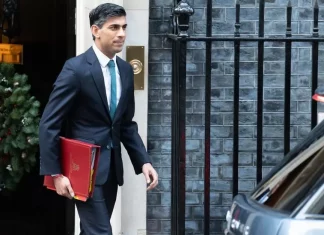Most people get about their business dealing with the currency of their country or zone. Pounds, euros, yuan, yen, they know if they visit the United States it would be dollars. Everyone understands that world commodities are traded in dollars. It is the reserve currency of the world. I suspect most folks don’t really think much further than that, why would they? They have to attend to their world. What can it have to do with them?
It might be worth digging a little bit deeper. How did the dollar become the world’s reserve currency? What indeed does that even mean?
What is a reserve currency?
When the world traded years ago the concept of a reserve currency would have bewildered our forbears. Money was gold and silver. You either had it for settlement or you didn’t. Your creditor cared not if you settled in gold sovereigns, francs or marks. Silver coin was usually equally satisfactory. The advent of paper money was simply a convenience for trade and safety. It was a promissory note. The issuer would exchange it for gold in specie on demand. Sadly, wars need to be funded so government intent upon them issued paper but without the important promissory factor.
After WWII, there was an international agreement that the dollar, backed in part by gold at a fixed price would be the anchor for the main global currencies. The volatility of paper currency values against gold very soon led to international arbitrage against the real price of gold and the fake participating government fixes. This was clearly doomed in the long term and it collapsed eventually in 1971 when President Nixon took the dollar off the gold standard. Too many people wanted gold for too few pieces of paper. This situation will arise again when the paper gold of exchange traded funds are found to not match the bullion claimed to exist in counterparty vaults.
Where are we now?
The world agreed to exchange commodities for paper, in particular, oil. The lifeblood of the industrial economies. The salt if you will of the prehistoric world.
For forty years the oil producing countries have been selling oil for paper, the Petrodollar.
The result is the oil producing countries and their industrial cousins are awash with dollars, held mainly in the form of U.S. Treasuries.
America has had the best of this bargain, they get oil and manufactured goods in exchange for fundamentally worthless paper. Moreover, it is becoming increasingly worthless. Let’s look at some numbers.
A barrel of oil in 1966 cost 2.75 grams in gold, today you can buy a barrel of oil for just 1 gram. Check out the dollar purchasing power. In the same year, a barrel cost $3.10 at the time of writing $40, a devaluation of 92%.
Countries selling oil, or indeed any commodity or manufactured good are beginning to realise they are falling into a dangerous trap.
Where are we going?
As world economies mature, this system will wither on the vine.
It is worth examining the Saudi position in some detail because it is a template at the moment for the geopolitical position of other economies including China and Russia.
Saudi wealth is owned by their royal family, not the state.
The state (or royal) oil company, Aramco, is valued at $2 trillion (give or take a billion). The Saudis are suffering from a fall in oil prices. To diversify their economy (assuming they can) they might consider selling 5% of their Aramco holdings, this would raise $100 billion, they have already raised a syndicated loan of $10 billion. A possible sale of $750 billion in U.S. Treasuries is on the cards.
Russia and China resent the Petrodollar, not unreasonably. Asia and the Indian subcontinent are marching towards a different system of settlement, anticipating abandoning American hegemony forever.
The world is therefore neck deep in Yankee dollars which only carry perceived value in America. They must, therefore, repatriate eventually, a phenomenon which manifested itself post-Vietnam.
The amounts are beyond the scope of human imagination.
It is in no one’s interest to collapse U.S. treasuries, least of all the Saudi royal family, Russian oligarchs, or Chinese Communist Party barons, but one thing is clear; this bizarre fiscal phenomenon cannot continue ad infinitum.
World economies must start to ponder these problems before a neo-con-industrial-military-congressional solution manifests itself as the only identifiable option.






